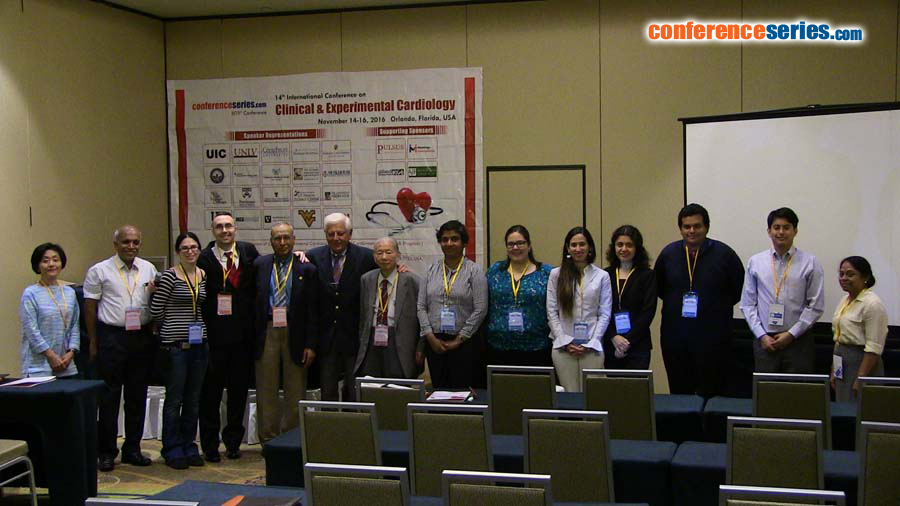
Sven Lehmann
Germany
Title: Longterm follow- up over 1000 consecutive adult patients treated with extracorporeal membrane oxygenation for refractory postcardiotomy cardiogenic shock
Biography
Biography: Sven Lehmann
Abstract
Introduction: The aim of the study was to evaluate the clinical outcome, 30 day- and longterm follow up in patients undergoing ECMO for refractory postcardiotomy cardiogenic shock.
Methods: We analyzed all patients undergoing ECMO-Therapie (n=1040; age = 55.8±20.8; 67.2% male) between 11/1997 and 12/2013 at our institution. Follow-up range was from 0 to 13.9 years and was complete in 100%.
Results: Patient mean body mass index was 26.6±5.4 kg/m², diabetes in 23.6%, pulmonary hypertension in 15.6%, active smoking in 25.1%, chronic obstructive pulmonary disease in 5.8%, peripheral arterial disease in 21.3%, preoperative intravenous inotropic in 9.2%, preoperative dialysis was in 4.6% and ejection fraction of 43.9±18%. Isolated CABG procedure was performed in 21% and isolated valve procedure in 12.2%. 30 day survival rate was 53±1.6%, 5 year survival rate was 19.8±1.5% and 16.4±1.9% after 10 years. Patient who were discharged from hospital had a 5 year survival rate of 60.6%±3.6% and 10 year survival rate of 50.3±5.3%. Additional surgery procedure increased mortality rate significant. Multivariate regression analysis revealed older age (p=0.01; OR 1.01 per year), preoperative beta blocker (p=0.005; OR 1.6) and active smoking (p=0.002; OR 1.7) as independent risk factors for mortality. Cox analysis revealed following predictors for long term mortality: preoperative calcium antagonist (p=0.01; OR 5.9), active smoking (p=0.013; OR 1.8), active endocarditis (p=0.013; OR 1.5), CABG operation (p=0.004; OR 1.3), aortic valve replacement operation (p=0.008; OR 1.3), mitral valve replacement (p=0.005; OR 1.4), replacement of the ascendens aorta (p=0.002; OR 1.5), postoperative cardiac arrhythmia (p=0.005; OR 5.6), symptomatic postoperative transitory psychotic syndrome (p< 0.001; OR 2.4), gastrointestinal complication (p=0.031; OR 8.9).
Conclusions: ECMO support is an acceptable option for patients with postcardiotomy cardiogenic shock who otherwise would die and is justified by good long-term outcome of hospital survivors. By high morbidity and mortality and also high resource management ECMO support must be definite by individual risk profile.


